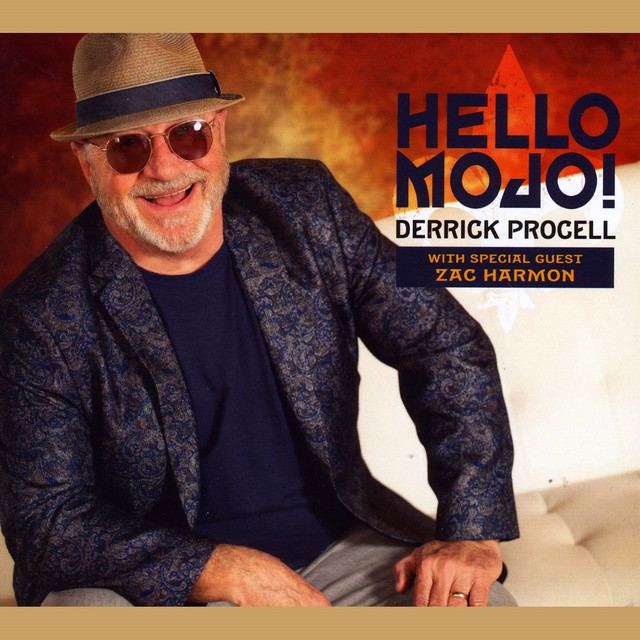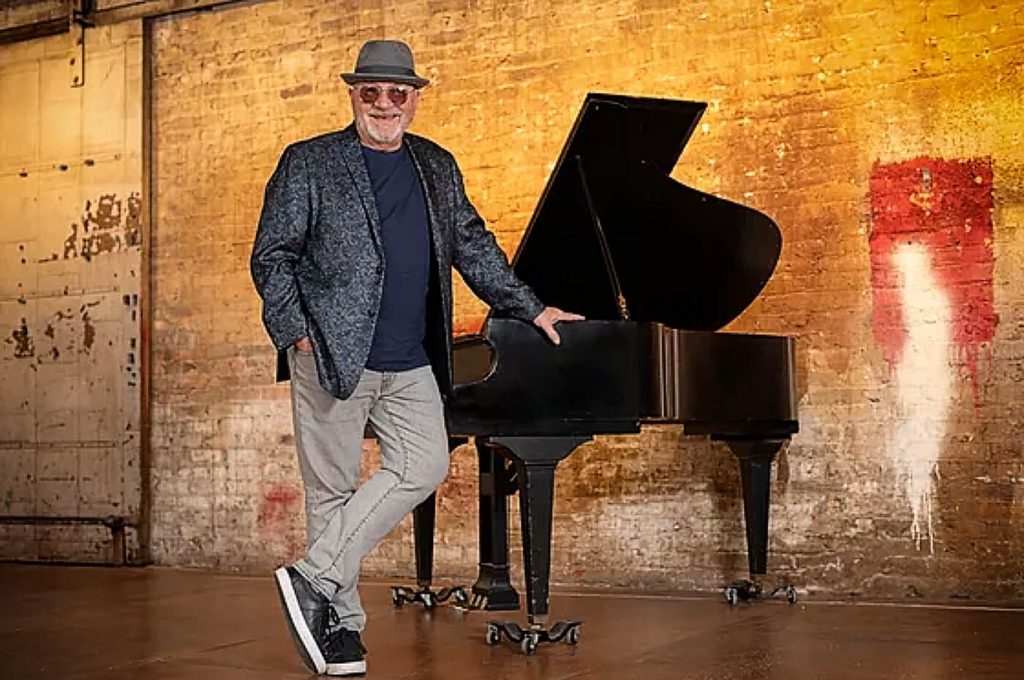“We wanted a song that could be your mama,” reveals Derrick Procell about the creation of his new Catfood Records release’s title song penned with longtime collaborator Terry Abrahamson. “A song that could hold your hand and tell you everything was gonna be alright. And whether you’re worried about losing your job or your sobriety or your Constitutional rights, or your hopes for the Scorched Earth, this is a message to the world that ‘Yes, your mojo can, indeed, come back.’ Of course, it had to be something you can dance to.”

“Hello Mojo!” sits at the number one spot of the latest Top 50 Blues Songs Chart in the Roots Music Report.
“Hello Mojo,” driven by a finger poppin’ N’awlins groove supercharged with a sizzling rhythm from south of some border somewhere, lays out the premise of the promise of the bleakness of a down and out mojo-less soul, then lays us out on the canvas for the inevitable 10-count, only to be raised like Lazarus on the heels of a hard “Nine” and dropped in the arms of redemption and joy.
You’ve gotta believe. You’ve gotta keep hope alive. If this song can help one soul hang on for one more hour, ‘Hello Mojo’ has done its job. Of course, a few million souls would be a little sweeter.
Derrick Procell
Produced by Blues Music Award winner Zac Harmon and mixed by Grammy winning music producer Jim Gaines, the song was recorded at Sonic Ranch in Texas with the label’s hard workin’ house band, The Rays. A stellar horn section, with incendiary sax & trombone solos by Peter Neumer and Steve Duncan, squeeze out enough Mojo to heal the planet, or at least your little slice of it.
Procell, a “five decade plus” veteran of the American Roots journey, has had his songs heard everywhere from television and movie hits This Is Us, The Office, Boston Legal, and the Oscar-nominated Ladybird, to the albums of the Cash Box Kings and Shemekia Copeland, for whom his “In the Blood of the Blues” snagged a chunk of the 2018 Blues Album of the Year. With half a century of Blues vocals, keyboards and harmonica under his belt, he’s the first to laugh at the notion that his next Blues Music Award nomination might make him the first 71 year old considered for “Best Emerging Artist:”
“I went from ‘The Harp Guy’ to the ‘AARP Guy.’”


